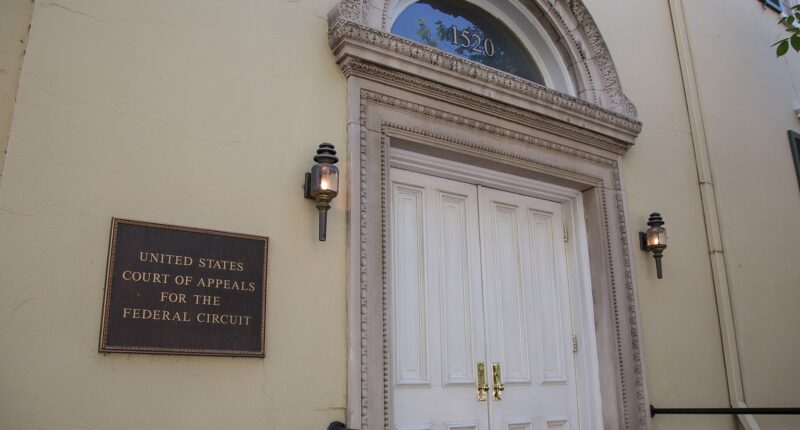The U.S. Supreme Court took a major step in helping dismantle the federal government’s stranglehold on public policy on Wednesday. In an 8-0 decision, the court ruled that the Environmental Protection Agency (EPA) could not defend itself against a lawsuit from Oklahoma and Utah in its rubber-stamp home court, the D.C. Circuit.
The case arose from the EPA’s 2023 decision to deny the state implementation plans (SIP) submitted by 21 states in order to comply with the 2015 “good neighbor” revision to the Clean Air Act, which “mandates states to prevent their emissions from substantially affecting the air quality of neighboring states.” However, the facts of this case are essentially a secondary point, because the thrust of the Supreme Court appeal has to do with the venue at which the case can be heard.
The EPA wanted it to be heard in the D.C. Circuit, while Oklahoma and Utah, two states suing the EPA over the denial of their SIPs, want it to be heard in the 10th Circuit — their regional court. While the EPA has argued that the case should be heard in D.C. because the implementation plans are being requested by all 50 states, Oklahoma and Utah believe their local circumstances are much better heard by their own federal courts.
In this case, the EPA did individual state reviews “on their own merits,” but then denied the SIPs of certain states in one “omnibus” Federal Register rule in order to artificially shoehorn it into the D.C. Circuit to claim that such publication makes the denials a national action.
Justice Clarence Thomas, who authored the opinion, recognized that merely publishing those denials together does not constitute a national action that might warrant review in the D.C. Circuit, but rather that each denial is a matter between the individual state and the EPA. It should therefore be challenged regionally.
“The two SIP disapprovals here are undisputedly locally or regionally applicable actions,” Thomas wrote. “A SIP is a state-specific plan, so an EPA disapproval on its face applies only to the State that proposed the SIP.”
Thomas authored another EPA case on Wednesday, this time a 7-2 decision that does still recognize the D.C. Circuit as the forum for challenging certain regulations, but only when the EPA rules are truly national in scope and apply to all cases uniformly.
The D.C. Circuit Lockbox
While venue is often looked upon as an anodyne procedural issue in court cases, what the EPA tried to do in this case is an example of one of the grossest displays of inside-the-swamp baseball in all of American government: keeping regulatory decision-making in D.C. so that D.C. can always win.
Thomas’ opinion does not take on the full scope of the problem with deference to the D.C. Circuit, but it could signal the start of dismantling the stranglehold the D.C. Circuit has over upholding federal regulations against the interests of the states and the American people.
For decades, the lie has been spun that somehow courts inside the D.C. Circuit have “special knowledge” of the regulatory world, and that therefore many challenges to regulations from executive branch agencies should be heard in the nation’s capital. The practical effect of this misconception is that the regulatory agencies get to put their thumb on the scale of each challenge, and judge-shop within the confines of a circuit that is already extremely favorable to regulatory power.
“It’s forum shopping. The EPA and Democrats want all these environmental and regulatory issues litigated in the D.C. Circuit because they can be more certain of the outcome. The outcome is generally going to favor the government, because that’s just how the D.C. Circuit works,” Steve Milloy, senior fellow at the Energy and Environment Legal Institute, told The Federalist. “The argument is that the judges in the D.C. Circuit handle more of these cases, are more familiar with the statutes, regulations, agencies, administrative law, and so they’re going to come to better decisions because they know more about it. And, you know, the argument against it is that these people just root for the home team, which [to them] is the government.”
On top of being generally sympathetic to federal agencies and regulation, the D.C. Circuit has for decades stacked challenges to federal regulation and other decisions against states in a systematic way, particularly from EPA, Milloy explained.
In general the D.C. Circuit has decided that it should defer to the government agency involved instead of completing a science-based review of challenges like those brought by Oklahoma and Utah. Milloy says this dysfunctional approach may have been weakened by the Supreme Court overturning the Chevron doctrine, which required courts to defer to agencies to interpret ambiguous laws, but that it is still the method of the D.C. Circuit, which has the reputation of being the de facto arbiter of federal regulation.
The D.C. Circuit is essentially the judicial branch version of “trust the experts,” the only difference being that these judges do not actually have any expert knowledge that makes them more equipped to decide court cases.
“There’s no judge in the D.C. Circuit that has special regulatory knowledge or experience,” Milloy said. “None of this stuff is administrative rocket science, it’s all pretty easy. And if anything, I think that local judges are going to probably understand local circumstances better and interpret the law that way.”
One of the many fundamental problems with the D.C. Circuit is that the judges live in D.C. and likely run in the same social circles as many of the administrators whose cases they will decide. As 5th Circuit Judge James Ho has pointed out, some judges lack fortitude and are trapped by their desire for social acceptance, and will therefore decide not to rock the boat too much. Presumably, judges on the D.C. Circuit who decide a case against an administrative agency could quickly find themselves on the outs in the city.
“This is a problem that afflicts conservatives more than Democrats. Conservatives have a record of judicial conservatism, and then they get … anywhere in Washington, D.C., and they go native so they can go to the parties and be socially acceptable and not raked over the coals by the Washington Post,” Milloy said.
The case will now proceed in the 10th Circuit; however, given that this case was started due to a Biden administration action, it is unclear whether the Trump administration will uphold the initial SIP denial.
Breccan F. Thies is a correspondent for The Federalist. He previously covered education and culture issues for the Washington Examiner and Breitbart News. He holds a degree from the University of Virginia and is a 2022 Claremont Institute Publius Fellow. You can follow him on X: @BreccanFThies.









